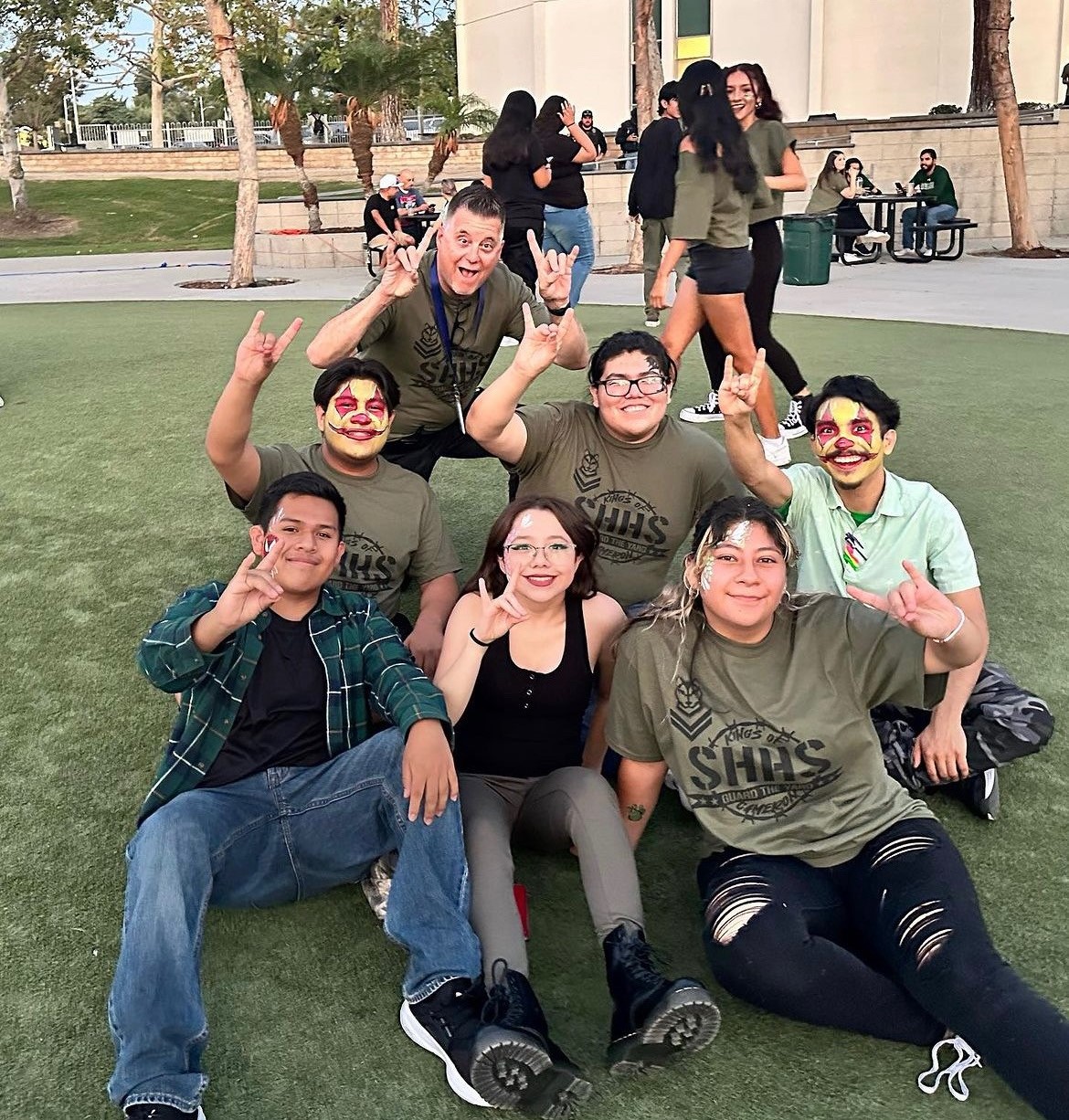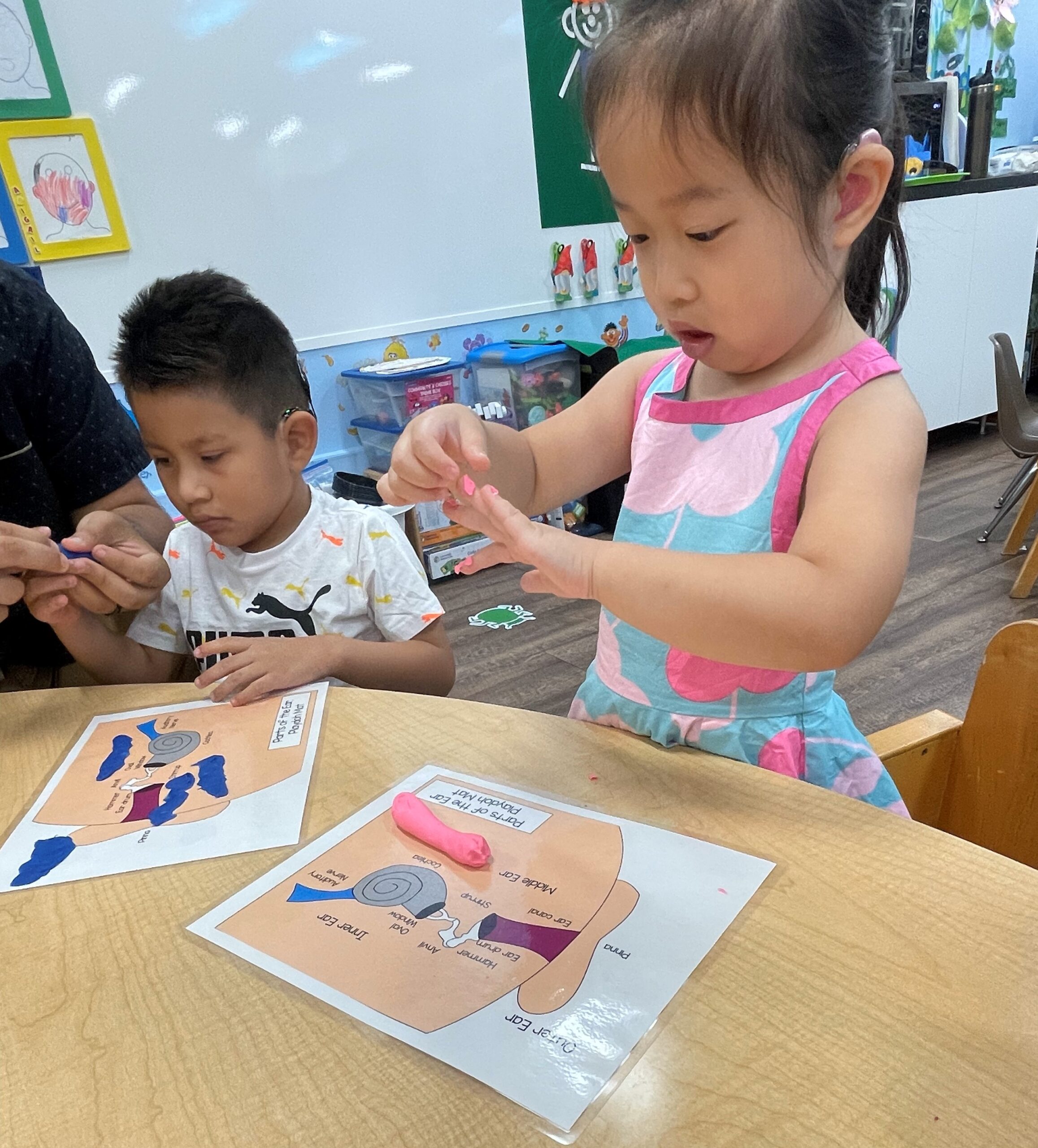Covina-Valley Unified School District
Covina-Valley Unified Supports Deaf or Hard of Hearing Students, Ensures Every Student Succeeds
COVINA, CA – Covina-Valley Unified School District supports students who are Deaf or Hard of Hearing (DHH) from across the San Gabriel Valley by offering crucial services, ensuring that every student has the resources and opportunities to achieve success in their personal and educational goals.
DHH students are supported by the Covina-Valley Children’s Center’s (C-VCC) Early Start Program through the Special Education Local Plan Area (SELPA). As early as their child’s birth, the C-VCC supports parents by educating them on hearing loss, language, and amplification and providing resources to help them decide on modes of communication. While at C-VCC, students focus on the development of receptive and expressive language skills and receive support for their various hearing losses.
“Early identification and support are key to limiting language deprivation suffered by our students,” DHH Program Coordinator Christine Sadler said. “Whether it be through using hearing aids, getting cochlear implants, or learning sign language, we provide the necessary support for these children to be successful and be able to be high functioning contributors to society when they are older.”
Some students return to their home school district while still receiving support through the SELPA via DHH Itinerant services, specialized auditory equipment, specially designed instruction in the general education classrooms, special day programs, and audiological support.
DHH students who stay in Covina-Valley Unified continue to Ben Lomond Elementary School, where the school offers Listening and Spoken Language and Sign Language to best fit the child’s listening and communication needs. Students then attend Sierra Vista Middle School, followed by South Hills High School, where their needs are continuously supported by specialized Deaf or Hard of Hearing staff.
“Our schools work tirelessly to ensure that Deaf or Hard of Hearing students are constantly integrated into everything the school site does,” Sadler said. “Hearing students see and interact with our DHH students, interpreters, and classroom aids daily – it’s just a normal part of their school day!”
Covina-Valley Unified is committed to providing DHH students with fun and engaging opportunities throughout the year, both academically and socially. The Deaf Academic Bowl is an annual scholastic competition that South Hills DHH students participate in that includes answering questions in a variety of subject matter. This annual regional competition is hosted by a different school each year, with the finals hosted by Gallaudet University in Washington, D.C.
DHH students can also participate in local activities such as the Deaf Arts Jubilee, where they learn about different artistic techniques, and can attend the Deaf prom which includes students from other local DHH programs.
“I feel like I am an equal and can socialize with a variety of people at school,” South Hills High DHH senior Mahonri Castro said. “I have lots of support and great interpreters here, and I really feel like I am involved and connected with the community.”
Covina-Valley Unified currently employs four interpreters who are dedicated to helping DHH students throughout the school day. Interpreters work with DHH students by accompanying them to mainstream classes and school activities.
“Our interpreters are the unsung heroes of our DHH program,” Superintendent Dr. Elizabeth Eminhizer said. “They are so dedicated to our students and are just another example of the incredible support and resources we provide to help every student succeed, every day.”
PHOTO CAPTIONS:
CVUSD_DHH1: South Hills High School Deaf or Hard of Hearing (DHH) students show off the Husky sign before joining their classmates at the annual ECHO football rally. DHH high school students are integrated into general education classes and participate in all school activities.
CVUSD_DHH2: A Deaf or Hard of Hearing (DHH) student learns about the human ear at the Covina-Valley Children’s Center (C-VCC). DHH students from across the San Gabriel Valley come to the C-VCC to focus on the development of receptive and expressive language skills and to receive support to address their child’s needs.


Covina-Valley Unified Supports Deaf or Hard of Hearing Students, Ensures Every Student Succeeds
Covina-Valley Unified School District
- Image Title
- CVUSD_DHH1
- Image Caption
- CVUSD_DHH1: South Hills High School Deaf or Hard of Hearing (DHH) students show off the Husky sign before joining their classmates at the annual ECHO football rally. DHH high school students are integrated into general education classes and participate in all school activities.
Right-click on the image to save
- Image Title
- CVUSD_DHH2
- Image Caption
- CVUSD_DHH2: A Deaf or Hard of Hearing (DHH) student learns about the human ear at the Covina-Valley Children’s Center (C-VCC). DHH students from across the San Gabriel Valley come to the C-VCC to focus on the development of receptive and expressive language skills and to receive support to address their child’s needs.
Right-click on the image to save


